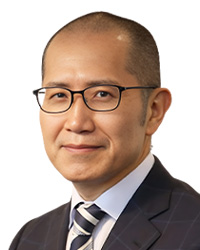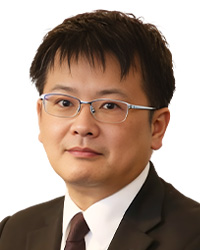The gloves are off to keep the nation’s reputation spotless
Japan is generally regarded as one of the least corrupt countries in the world. It was ranked 18th out of 180 countries in Transparency International’s corruption perceptions index 2022, making it one of the clearest places to do business in the Asia Pacific Region.
However, even in Japan, there are three sectors that are considered to be high risk: healthcare; construction; and politics. Bribery cases in Japan are rare and usually attract significant media attention. This means prosecutors and police tend to devote significant resources to enforcement.
HEALTHCARE

Representative Partner
GI&T Law Office in Tokyo
Email: kengo.nishigaki@giandt-law.com
In September 2023, the president of Japanese medical device company Zeon Medical was arrested for allegedly approving a fictitious post-marketing surveillance (PMS) programme. This is the first known case of the head of a medical device manufacturer being arrested for bribery in Japan.
In fact, the company was allegedly paying bribes to a doctor at the National Cancer Centre Hospital. For each medical device (a stent for cardiovascular surgery) manufactured by the company, they allegedly paid JPY10,000 (USD66) to the doctor under the guise of a fee for assisting with the PMS programme. The “fees” in the 2019 and 2020 fiscal years totalled about JPY3 million. The hospital had not previously used Zeon’s stents, but after the programme’s introduction the hospital bought more than 50% of its stents from Zeon.
There are also active criminal cases involving Staar Japan in 2022/23 (alleged payments to doctors for the provision of surgery videos to promote sales) and Mie University in 2021 (alleged donations to the university hospital, which were deemed bribes). In 2023, there were also cases where healthcare professionals were indicted for allegedly accepting relatively small meals and gifts.
CONSTRUCTION AND POLITICS
The Japanese government has been actively enforcing anti-bribery laws against corruption in construction and politics. Recently, there has been attention paid to the renewable energy sector, which usually involves construction in a broad sense, and politics.
The renewable energy industry is highly regulated by environmental laws and government policies, and politicians play a significant role in determining which renewable energy projects go forward.
At least a few cases have been indicted every year, involving not only public officials in rural areas but also, in one case, a congressman, Masatoshi Akimoto. In September 2023, Akimoto was arrested on suspicion of accepting JPY61 million from a renewable energy company in return for allegedly asking questions at the House of Representatives that would help the company in a public bid for an offshore wind power generation development rights.
DOMESTIC BRIBERY

Counsel
GI&T Law Office in Tokyo
Email: nobuhiro.matsuo@giandt-law.com
Article 197 of the Penal Code of Japan provides that a public official who receives, requests or promises to receive a bribe in connection with their duty shall be subject to imprisonment of up to five years. If there were a quid-pro-quo between bribery and a public official’s action or inaction in their duty, the imprisonment is up to seven years.
Article 198 provides that a person who pays, offers or promises to pay a bribe to a public official, shall be subject to imprisonment of up to three years or a fine of JPY2.5 million. Only natural people, not corporations, are subject to the penal code.
In practice, courts often suspend a prison sentence if defendants show remorse (unless the amount of bribe payment was substantial). The logic is that the defendants have already been punished effectively because of the negative stigma of criminal investigation and indictment. The reputational damages to the indicted individuals, the associated companies and governmental agencies are often more substantial than the criminal penalties.
FOREIGN BRIBERY
Analogous to the the US Foreign Corrupt Practices Act (FCPA) and the UK Bribery Act, Japan has a specific crime that prohibits foreign bribery. Article 18 of the Unfair Competition Prevention Act was introduced in 2008, after Japan signed up to the OECD’s Anti-Bribery Convention in December 2007.
However there have only been about 10 enforcement cases, and the penalties were much less than those under the FCPA or other foreign bribery legislation. As a result, and as strongly urged by the OECD, Japan amended the act in June 2023 to strengthen enforcement. The changes will likely become effective in spring, 2024. In summary, the amendments are in the graph below.
| Current | New | |
|---|---|---|
| Maximum fine (natural person) | JPY5 million | JPY30 million, which is the highest criminal fine for a natural person under Japanese law |
| Maximum imprisonment | Five years | 10 years, which is the longest imprisonment term for a white-collar crime under Japanese law |
| Maximum fine (legal entity) | JPY300 million | JPY1 billion, which is the highest criminal fine for a legal entity under Japanese law |
The statute of limitations will be increased from five years to seven years, which will make it easier for law enforcement to indict foreign bribery cases.
In terms of extraterritoriality, the current act has jurisdiction if:
- All or part of the conduct was done in Japan; and
- A Japanese national conducted all or part of the foreign bribery.
This means that prosecutors would not be able to indict a foreign employee of a Japanese company who bribed a foreign official, unless a Japanese expat and the Japan headquarters were involved.
Ironically, this means that Japanese expats are incentivised to turn a blind eye. If a Japanese expat does not try to prevent bribery, he/she is less likely to become aware of bribery, and the act will not be applicable because no Japanese national was involved in the foreign bribery and the conduct was confined to a foreign country.
To address this, the act has been amended to catch anyone working at a Japanese company in a foreign country, regardless of their nationality.
JUDICIAL HOSTAGES

Counsel
GI&T Law Office in Tokyo
Email: patrick.forman@giandt-law.com
In Japan, 99% of criminal cases end with a guilty judgment. This is mainly because the prosecutor’s office carefully selects cases for indictment to avoid acquittal.
However, it is also believed that courts and prosecutors tend to unduly rely on confessions by suspects.
It is difficult to get bail if you do not confess to the crime. This results in defendants being detained for a long time, sometimes more than a year. This is notoriously called the “hostage judicial system”, and has proven to be a cause of forced confessions that may sometimes lead to false accusations to serious crimes.
In addition, although Japan introduced a plea bargaining system in June 2018, there have been only three cases where the prosecutor’s office used the system (including the famous Carlos Ghosn – Nissan case). As a result, the prosecutor’s office and police must thoroughly prove all criminal facts by gathering firm evidence and confessions, which may lead to illegal conduct by the authorities themselves.
RECOMMENDATIONS
Needless to say, corporations (especially those in high-risk industries) should establish an effective anti-bribery compliance system, which should include robust anti-bribery policies, training, risk assessments, and tone-at-the-top messaging.
However, in our experience, Japanese companies (including foreign firms capitalised in Japan) are often unprepared for criminal investigations.
They do not know whether and how to co-operate with enforcement agencies. They usually do not even have a dawn raid policy.
In most cases, authorities start with collecting evidence from a target company and other sources on a voluntary basis. Once they decide they have sufficient evidence to commence a forced investigation, they raid the company’s premises and arrest its executives.
Once that happens, and they have decided to indict the case by keeping the arrested individuals without bail for a long time, and obtain their confessions, it is difficult in practise to defend against the charges, given the guilty rate is 99%.
It is therefore crucial to build your defence before the forced investigation phase begins, by instructing lawyers with experience in handling white-collar criminal cases to help establish a robust defence strategy at the earliest possible stage of investigation.

GI&T LAW OFFICE
23F Marunouchi-Kitaguchi Building
1-6-5, Marunouchi, Chiyoda-ku
Tokyo 100-0005
Email: info@giandt-law.com
Tel: +81 3 6206 3283































